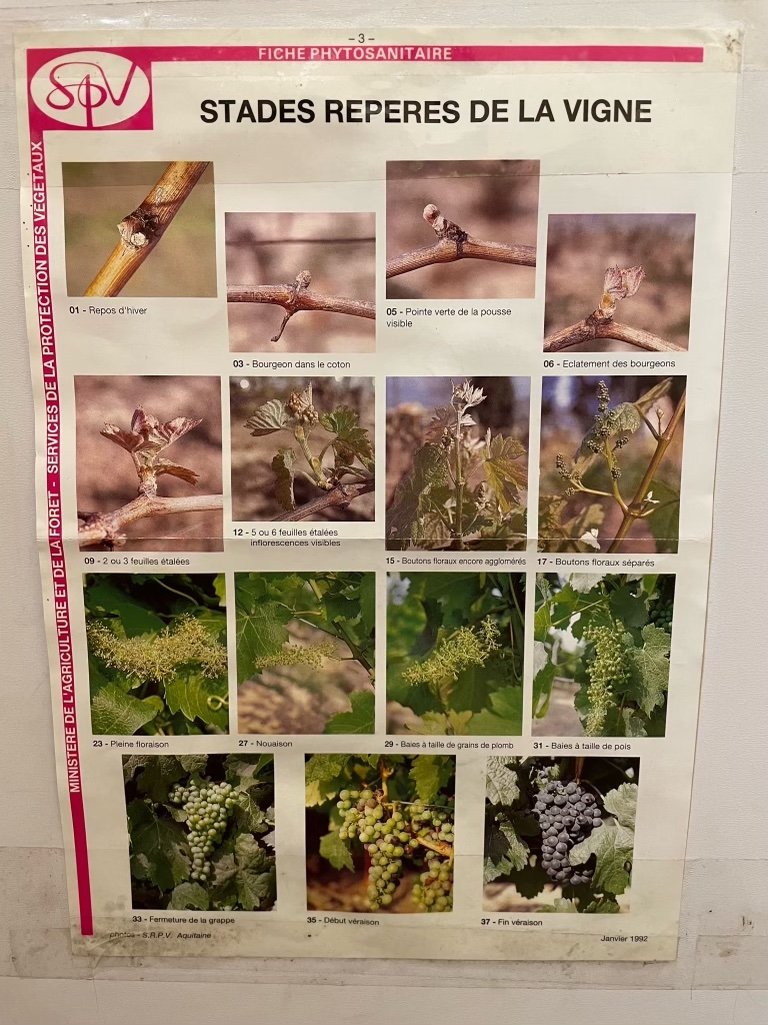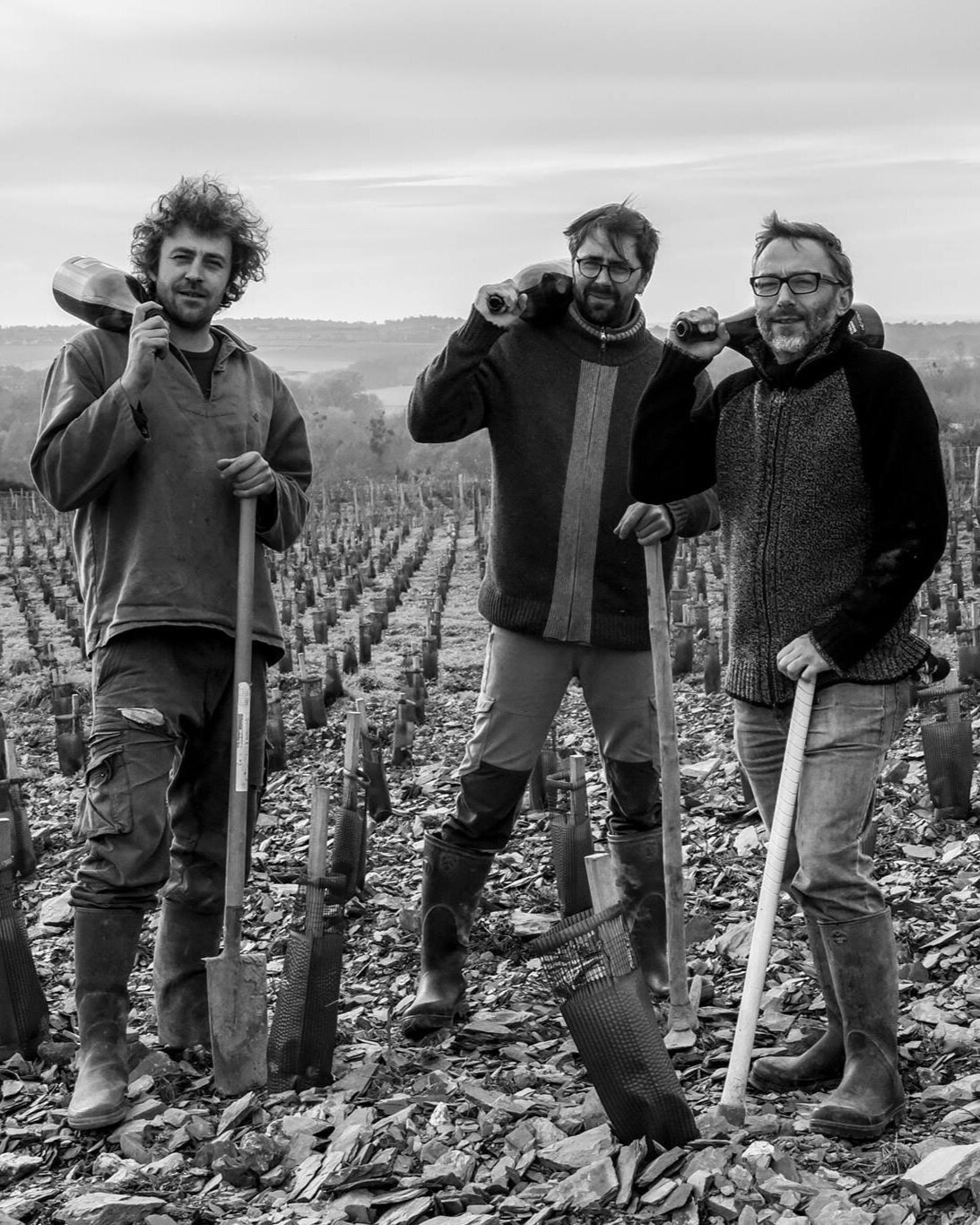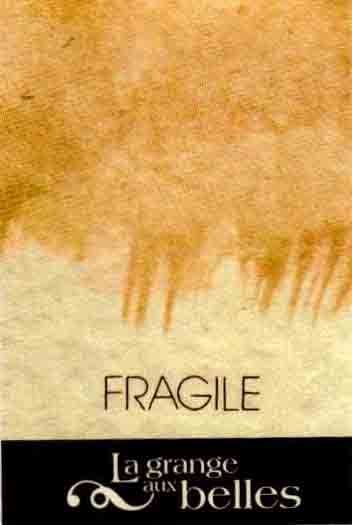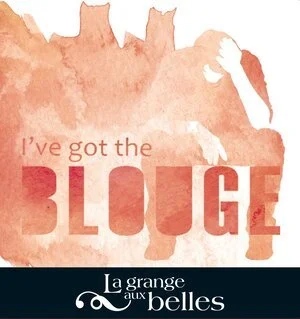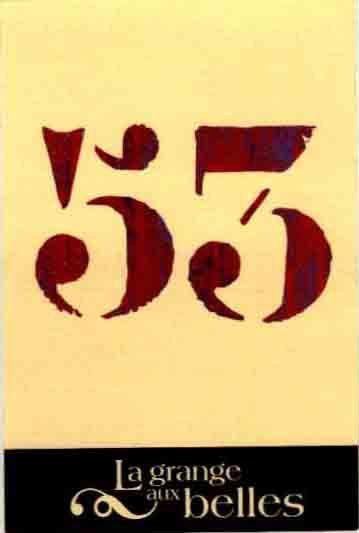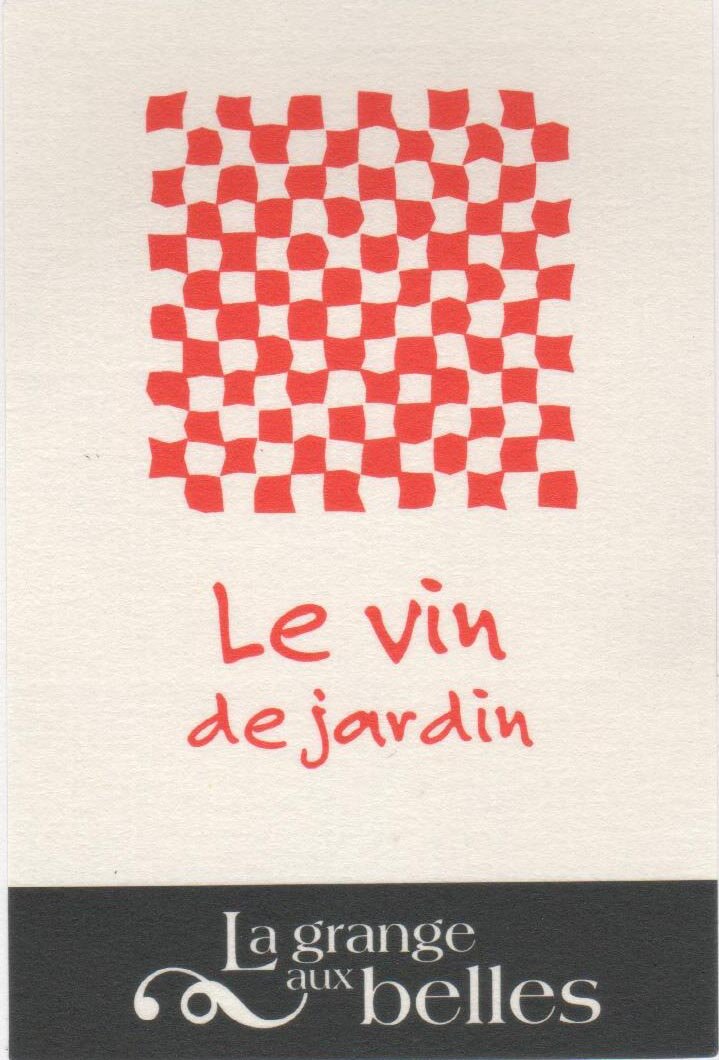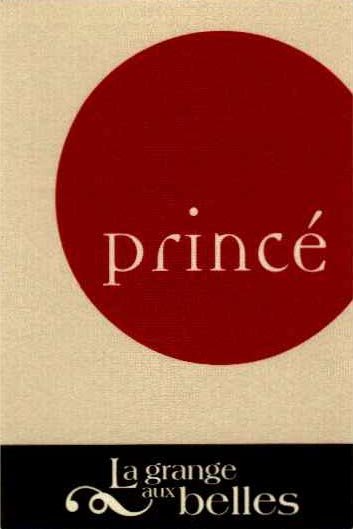La Grange aux Belles
Julien Bresteau / Marc Houtin / Gérald Peau
Soulaine sur Aubance
La Grange aux Belles is a cadre of friends making wine in Anjou, founded by Marc Houtin in 2004. Marc had worked internships all around France, and most notably at Chateau d'Yquem and was interested in making light, wines with short macerations, organically, with minimal intervention... everything we want in natural Loire wine.
Initially he was making wine for the cooperative in Brissac, but was always experimenting with different parcels, making wine that would eventually end up in this or that cuvée. This was even more the case when Julien Bresteau joined in 2008, a catastrophic vintage.
They doubled down on their organic conversion and started following the methodology of the French geologist Yves Herody, which changed everything. Today they are still following these principles to incredible effect. They totally eschew all herbicides and pesticides in the vineyards, and vinifiy without any additives (with very few exceptions given many difficult vintages).
Today, Gérald Peau joins the team and keep things afloat. Their 15ha spread around the AOC Coteaux de l'Aubance. This is what is colloquially referred to as black Anjou, as opposed to white Anjou, just since you get black Schist bedrock rather than the white, chalky parts of Anjou. I think this contributes greatly to the resulting wines, and so do the guys at Grange aux Belles. Their most choice plots have almost no topsoil as well. The wines are therefore sheer, and incredibly tense, which is how we like our Chenin nowadays, right? The vines are old too, 45 years to 80+ years old, spread over 5 communes in the Coteaux de l'Aubance appellation area: Soulaines sur Aubance, Vauchrétien, Saint Melaine sur Aubance, Juigné sur Loire, Murs Erigné "La Roche de Murs".
These guys are really serious about sorting – in the vines and after harvest. When there is time, they will pass through plots maybe 5 times, and then sort further on the table. This is essential for them to not add anything during fermentation (or after). Everything is spontaneous fermentation with native yeasts, and the macerations are kept very short. All the whites see barrel fermentation. The reds are split between stainless, concrete and fiberglass.


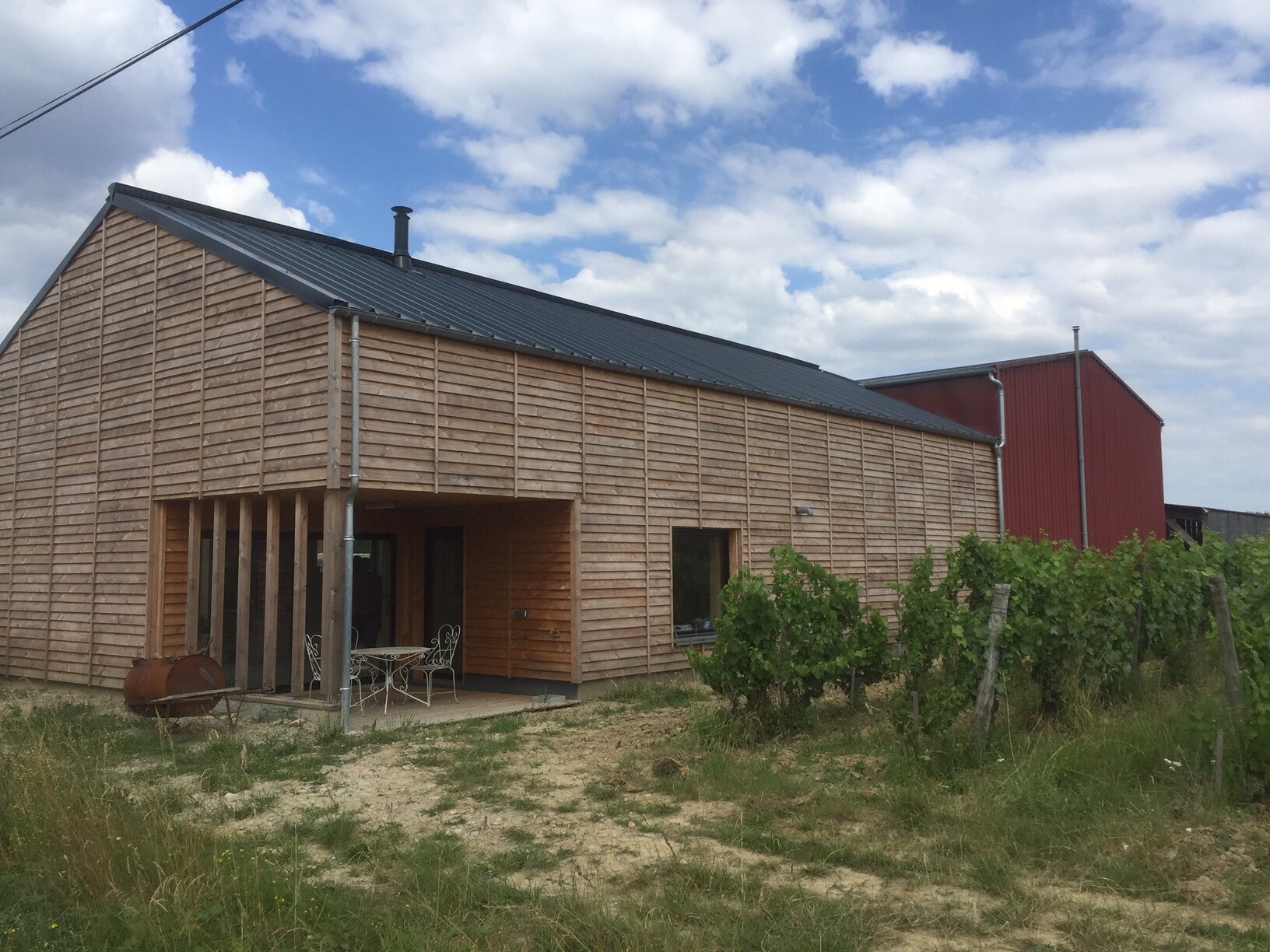
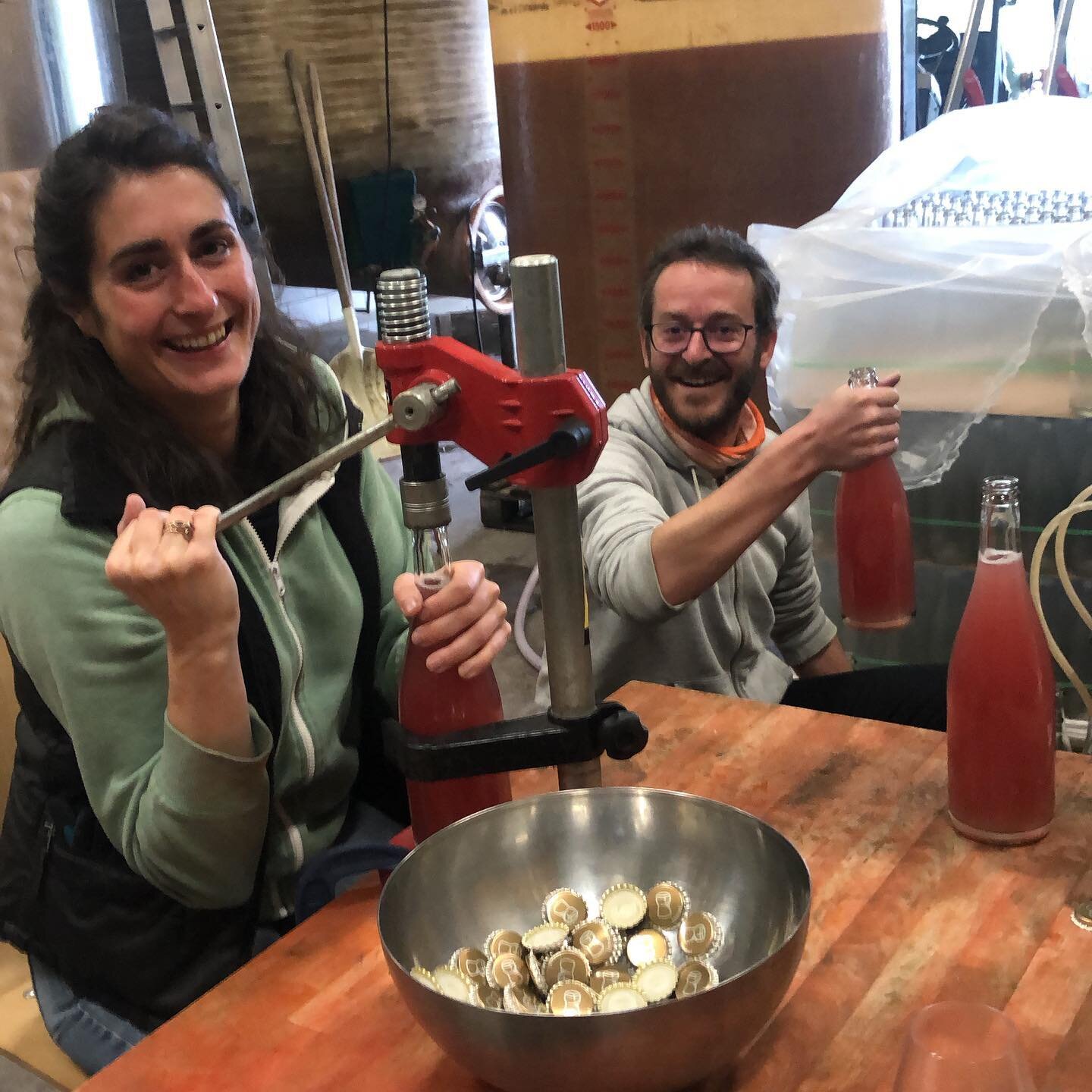


2022
Vdf “La Roche de Mûrs” 2022
VARIETY : Chenin Blanc
TERROIR : 2 plots - Selection Massale vineyard from 2012 - younger vines - both on Black Schist with some Quartz
Certified Organic
HARVEST : hand picked
VINIFICATION :
Hand Harvested
Picked in 2 passes
Aged in a variety of wooden vessels for at least one year.
2021
Vdf “La Roche de Mûrs” 2021
VARIETY : Chenin Blanc
TERROIR : 2 plots - Selection Massale vineyard from 2012 - younger vines - both on Black Schist with some Quartz
Certified Organic
HARVEST : hand picked
VINIFICATION :
Hand Harvested
Picked in 2 passes
Aged in a variety of wooden vessels for at least one year.
Vdf "Coup de Grisou" 2021
VARIETY : Grolleau Gris
TERROIR : young vines on black schist
HARVEST : hand picked
VINIFICATION :
bottled a month after harvest direct press into stainless.
Vdf "Le Vin de Jardin" 2021
VARIETY : Grolleau
TERROIR :
Black schist, Certified Organic, Biodynamic
HARVEST : hand picked
VINIFICATION :
10 day whole cluster fermentation in fiberglass.
2020
Vdf “La Roche de Mûrs”
VARIETY : Chenin
TERROIR :
A massale selection planted on an incredible vineyard of pure schist, with almost no topsoil.
Certified Organic
HARVEST : hand picked
VINIFICATION :
Aged in Stockinger barrels, that round out any sharp edges and make for an incredibly elegant texture. Aged on lees.
Vdf "Fragile" 2020
VARIETY : Chenin
TERROIR :
vines range from 2009-2015 from 2 different plots of black Schist.
Certified Organic
HARVEST : hand picked
VINIFICATION :
This is a wine made from all the perfectly ripe Chenin from each of their plots. About 1/5 sees oak aging. This is more of an Anjou wine than many of the others: incredibly lush, mouthwatering fruit.
Vdf "Cuvée 53" 2020 (Cab Franc)
VARIETY : Cabernet Franc
TERROIR :
Vines planted in 1953 on the shiny black schist of Anjou fame.
Certified Organic
HARVEST : hand picked
VINIFICATION :
Destemmed and fermented in concrete, then aged in fiberglass. Bottled in the beginning of summer, so almost a year in bottle.
2019
Vdf “La Roche de Mûrs” 2019
VARIETY : Chenin
TERROIR :
A massale selection planted on an incredible vineyard of pure schist, with almost no topsoil.
Certified Organic
HARVEST : hand picked
VINIFICATION :
Aged in Stockinger barrels, that round out any sharp edges and make for an incredibly elegant texture. Aged on lees.
Vdf “Fragile” 2019
VARIETY : Chenin
TERROIR :
vines range from 2009-2015 from 2 different plots of black Schist.
Certified Organic
HARVEST : hand picked
VINIFICATION :
This is a wine made from all the perfectly ripe Chenin from each of their plots. About 1/5 sees oak aging. This is more of an Anjou wine than many of the others: incredibly lush, mouthwatering fruit.
Vdf “Princé” 2021
VARIETY : Cabernet Franc
TERROIR :
Selection of all the best fruit from each plot.
Certified Organic
HARVEST : hand picked
VINIFICATION :
Like Fragile, this wine is a selection of all the best fruit from each plot, vinified together (after being destemmed) in a mix of concrete and fiberglass and bottled in September.
2018
Vdf "La Belle Adorée" 2018
VARIETY : Chenin Blanc
TERROIR : This is from the Roche de Murs plot, botrytized grapes.
HARVEST : hand picked
VINIFICATION : 2 years in Stockinger barrels.
2017
Vdf “La Roche de Mûrs” 2017
VARIETY : Chenin Blanc
TERROIR : 2 plots - Selection Massale vineyard from 2012 - younger vines - both on Black Schist with some Quartz
Certified Organic
HARVEST : hand picked
VINIFICATION :
Hand Harvested
Picked in 2 passes
Vinified in fiberglass and stainless steel
Direct Press


